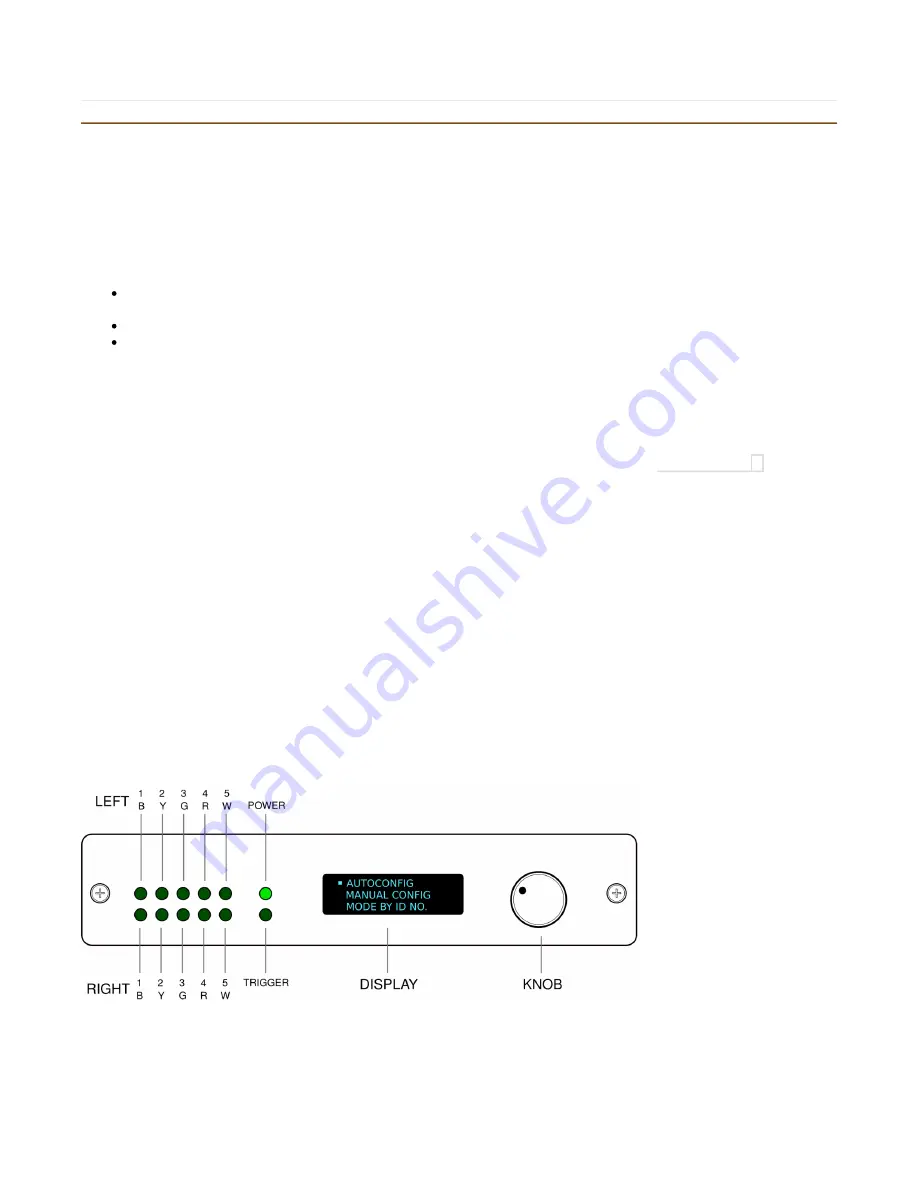
Setting Up the 932 fORP
Setting up the 932 is a matter of making connections and choosing the output you want.
The 932 supports many different handheld devices, and can produce many different types of outputs.
In the following sections we'll cover how to make these connections, and how to choose the mode you want.
Making the Connections
These things need to be connected:
the handheld devices - Plug the handheld device either directly into the 932, or connect it through a removable
bundle.
the power supply
the output cable (USB, serial, parallel, or other) to the host computer.
You may also want to connect an optical or TTL trigger.
These connections are all made to ports on the 932 rear panel, which is described in more detail under
932RearPanel
.
Choos ing the Us e Mode
Each output behavior is a "Use Mode". A brief descriptive list of the available modes is given in 932 Use Modes
?
.
Most users will only be interested in one or two of these modes.
The choice of use mode is determined by:
Cabling to the host
1.
Type of connected handheld device
2.
Desired output format
3.
Your choices are made using the knob on the front panel, guided by the display.
932 Front Panel
The 932 front panel uses a shaft encoder and display to let the user choose among many operating modes, and also displays
real-time activity using a bank of 10 green LED indicators.
The shaft encoder works together with the display to allow choices from menus, using clockwise and counter-clockwise
rotations and a push-click for selections.
Front Panel Indicator Functions - Button Box Modes
This drawing shows the front panel of the 932 with the indicator LEDs labeled as they would function in typical button box
modes.
In some modes the indicator LEDs are used to indicate motion (for the scroll wheel device, for instance) or activity (scanning
Summary of Contents for 932 fORP
Page 1: ...Getting Started The 932 fORP ...
Page 2: ......












